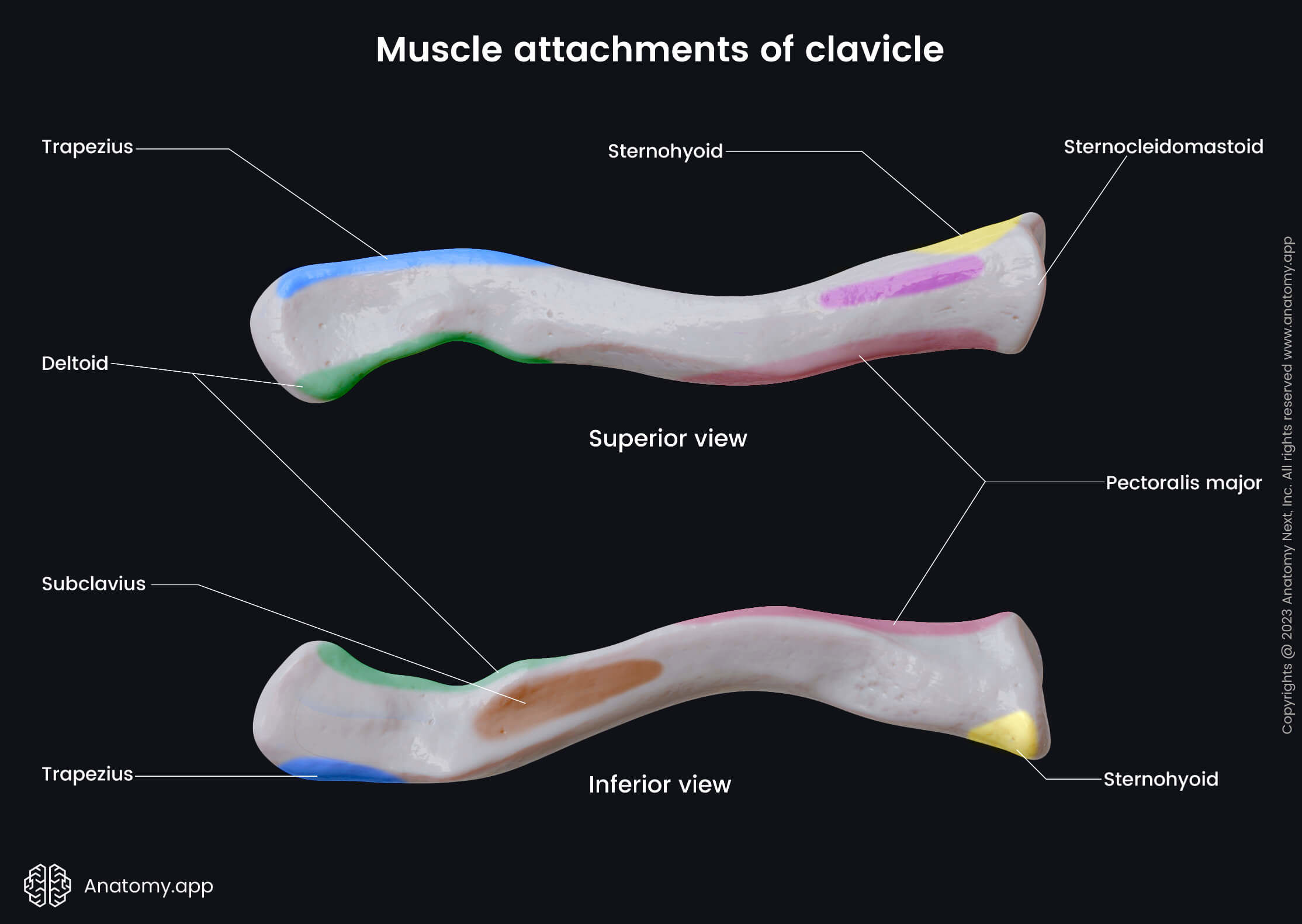- Anatomical terminology
- Skeletal system
- Skeleton of trunk
- Skull
-
Skeleton of upper limb
- Bones of shoulder girdle
- Humerus
- Bones of forearm
- Bones of hand
- Skeleton of lower limb
- Joints
- Muscles
- Heart
- Blood vessels
- Lymphatic system
- Nervous system
- Respiratory system
- Digestive system
- Urinary system
- Female reproductive system
- Male reproductive system
- Endocrine glands
- Eye
- Ear
Clavicle
The clavicle (Latin: clavicula), also known as the collarbone, is a paired long bone extending between the sternum and the scapula. The clavicle can be palpated along all its length, and it can be visible right under the skin of a person.
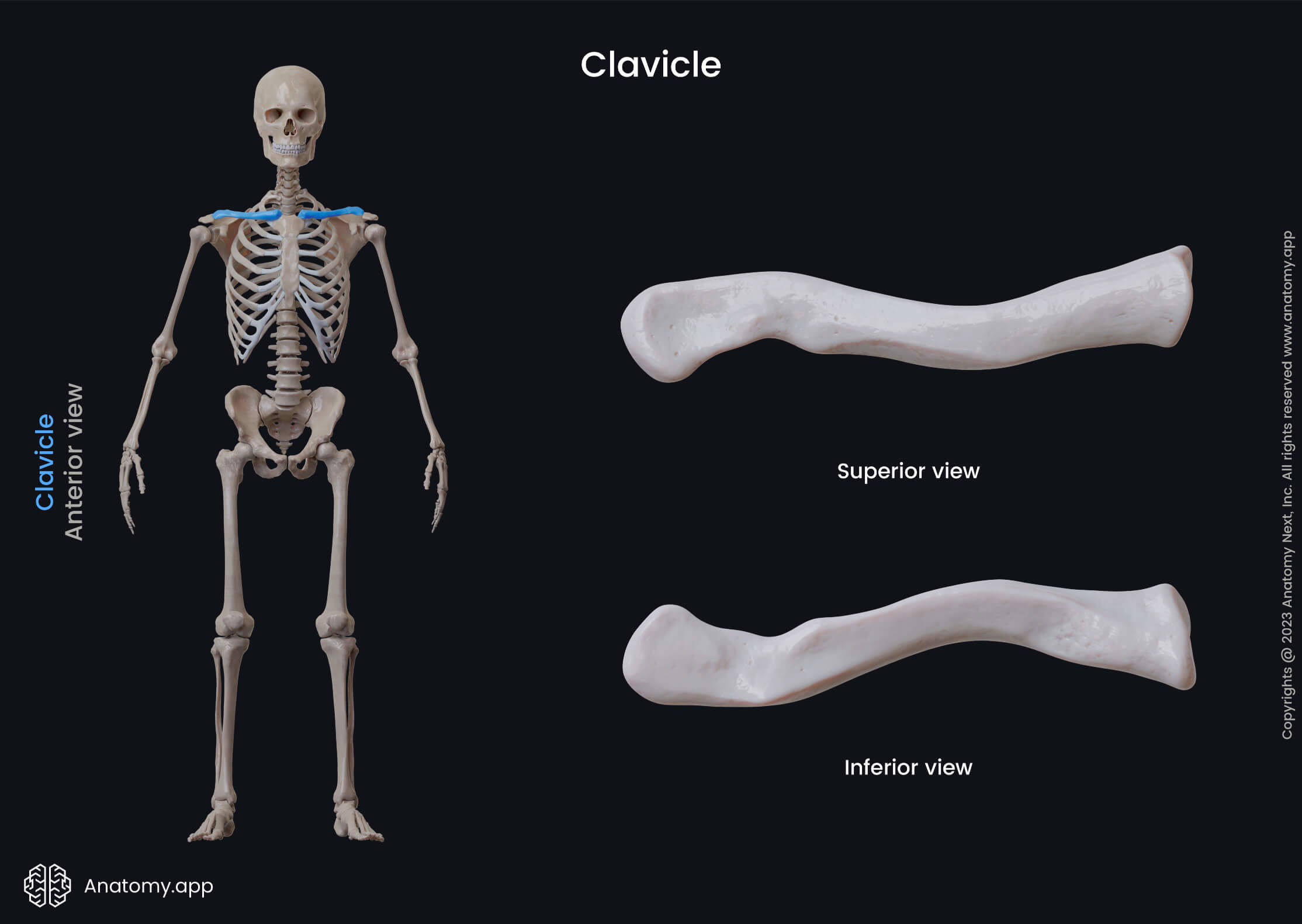
The clavicle is situated directly above the first rib. Its medial or sternal end articulates with the manubrium of the sternum at the sternoclavicular joint. The lateral or acromial end of the clavicle articulates with the acromion of the scapula at the acromioclavicular joint.
The clavicle is a slender bone with two curves that gives it an “S” shape. It presents with three parts - sternal (medial) end, a shaft (body), and an acromial (lateral) end. When facing forward, the medial part of the clavicle is convex, while its lateral aspect is concave.
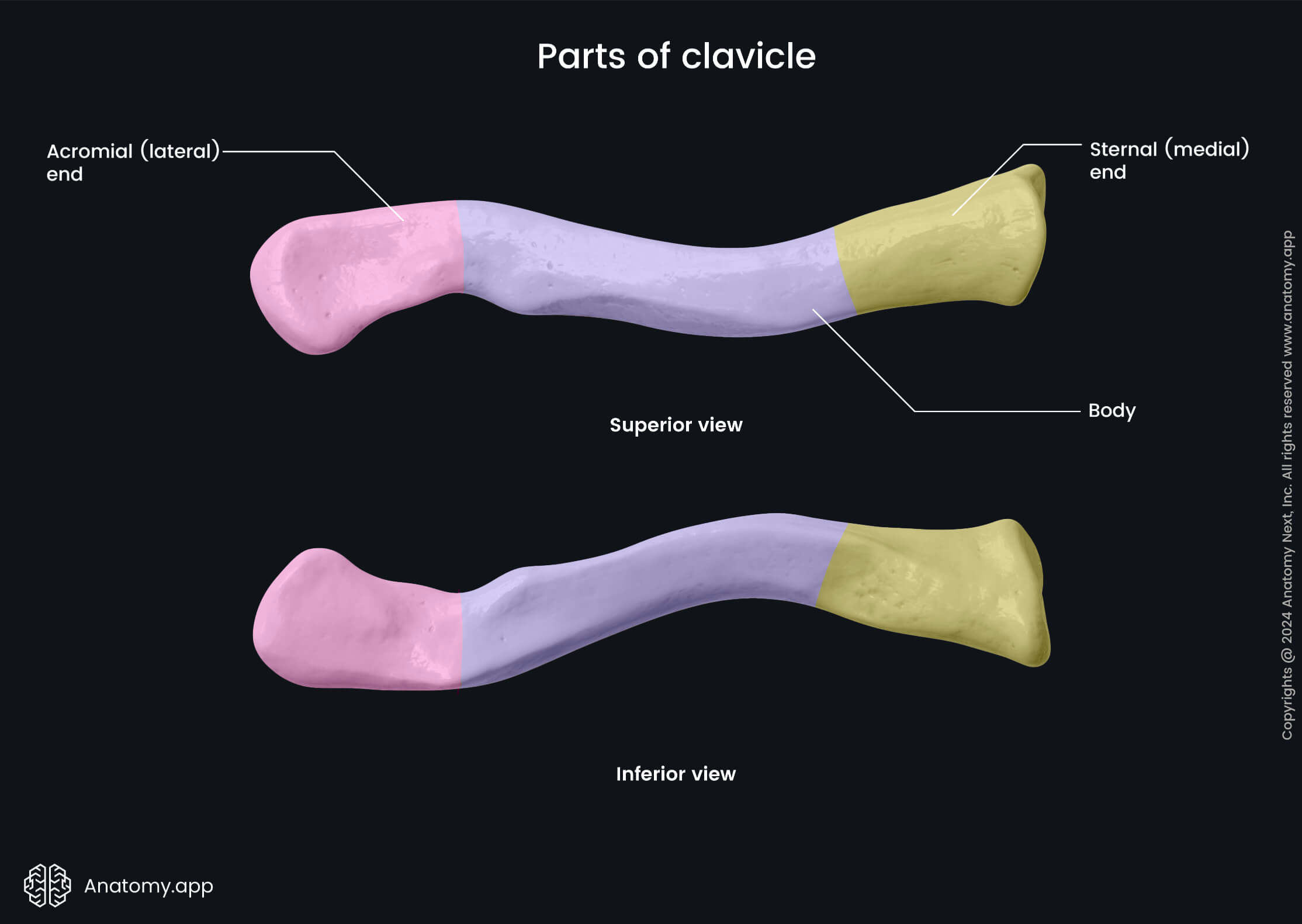
Interestingly, the clavicle is the only long bone in the human body that lies horizontally. It acts as a strut that keeps the scapula in place so that the upper limb can hang freely. Together with the scapula, the clavicle forms the shoulder girdle.
The main functions of the clavicle include:
- It participates in attaching the upper limb to the trunk by being a part of the shoulder girdle.
- The clavicle protects the neurovascular structures that are located below it.
- It transmits the force from the upper limb to the axial skeleton.
Sternal end of clavicle
The sternal or medial end of the clavicle presents with a large triangular facet for articulation with the clavicular notch located on the manubrium of the sternum. This articulation between both bones is known as the sternoclavicular joint.
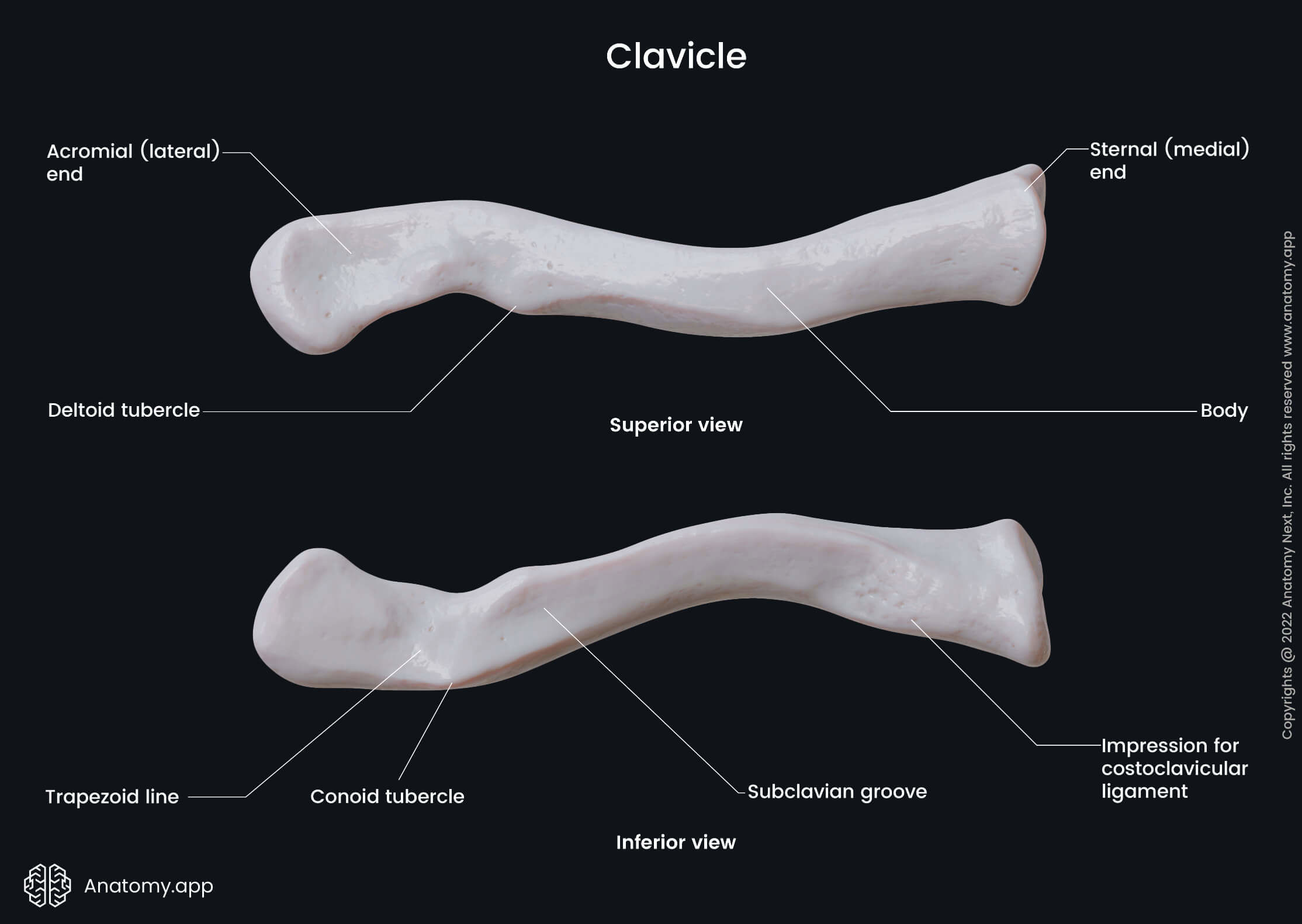
The inferior aspect of the sternal end contains a rough impression known as the costal tuberosity that serves as an attachment site for the costoclavicular ligament. It connects the first rib with the clavicle, and it is classified as a ligament of the sternoclavicular joint.
The medial end functions as an attachment site for the following structures:
- A fibrous joint capsule encloses it.
- Superoposteriorly to it is attached an articular disc of the sternoclavicular joint.
- Superiorly it is connected to the interclavicular ligament.
Shaft of clavicle
The shaft (or diaphysis, or body) refers to the middle part of any long bone. The shaft of the clavicle serves as an origin site for several muscles, including the deltoid, trapezius, subclavius, sternocleidomastoid, pectoralis major, and sternohyoid muscles.
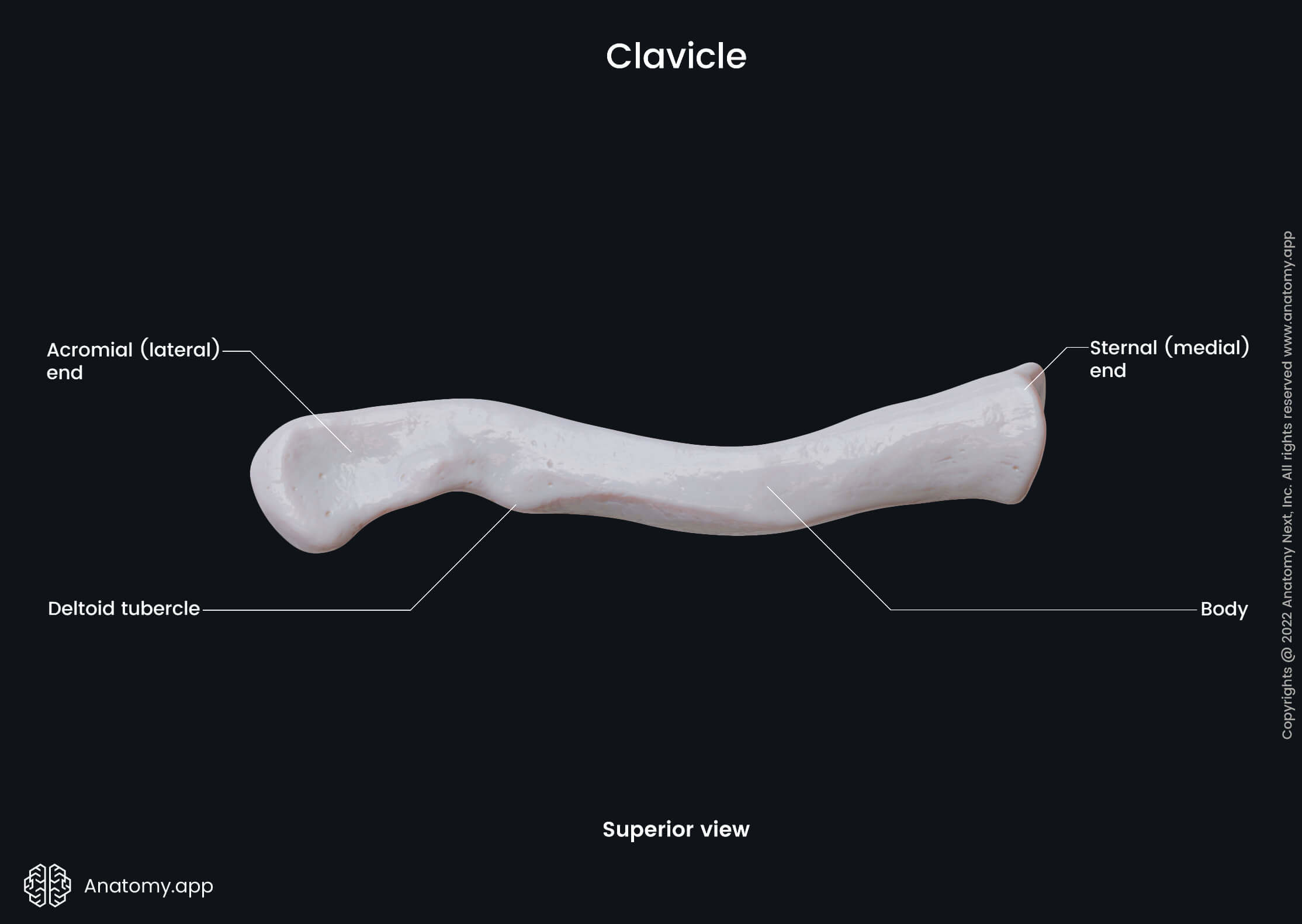
Acromial end of clavicle
The acromial or lateral end of the clavicle contains an oval-shaped facet for articulation with the acromion of the scapula to form the acromioclavicular joint. The joint is surrounded by a fibrous joint capsule that attaches to the bones forming it.
The acromial end of the clavicle presents with several landmarks that serve as attachment sites for the conoid and trapezoid ligaments - parts of the coracoclavicular ligament. These mentioned landmarks of the clavicle are as follows:
- Conoid tubercle - bony prominence on the inferior surface of the acromial end; attachment site for the conoid ligament;
- Trapezoid line - an oblique ridge going forward from the conoid tubercle; attachment site for the trapezoid ligament.
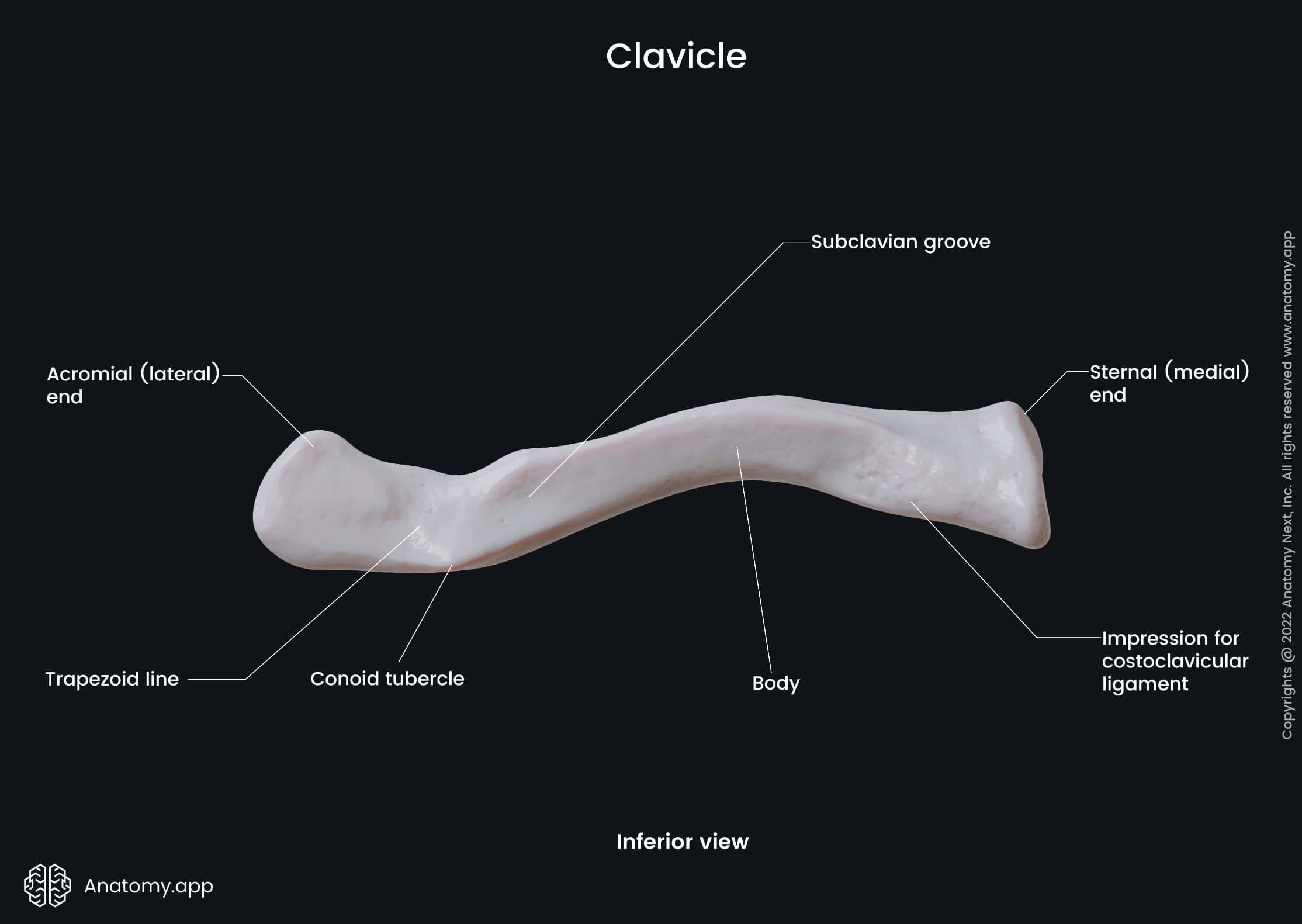
The coracoclavicular ligament is a very strong ligament connecting the clavicle with the coracoid process of the scapula. It suspends the weight of the upper limb from the clavicle. Its medial part is formed by the conoid ligament, while the lateral by the trapezoid ligament.
